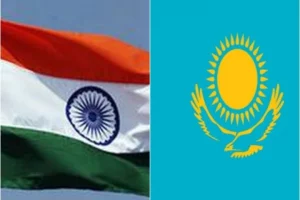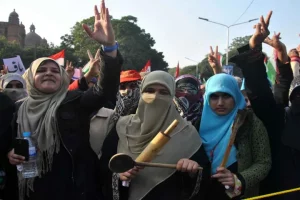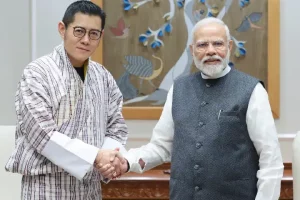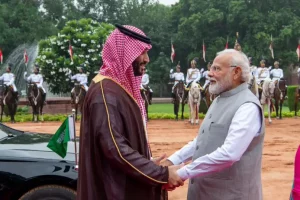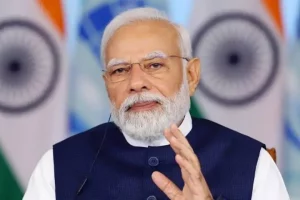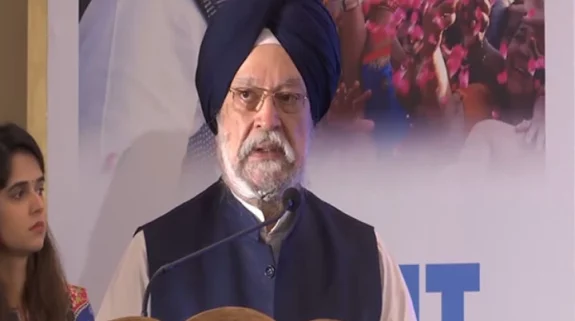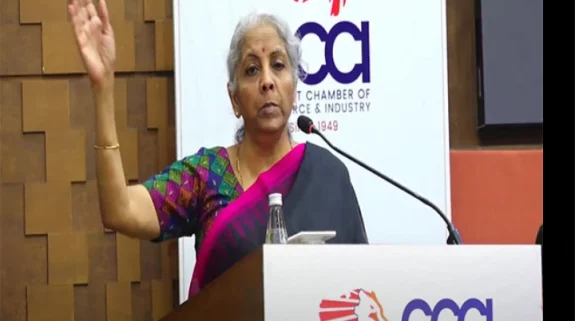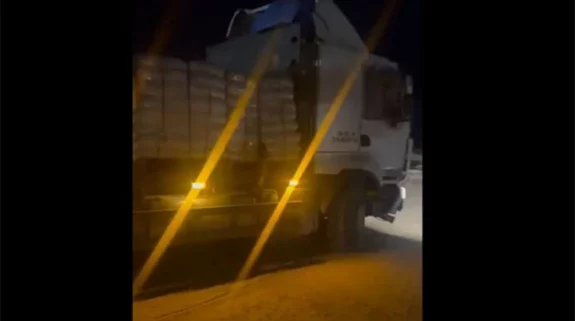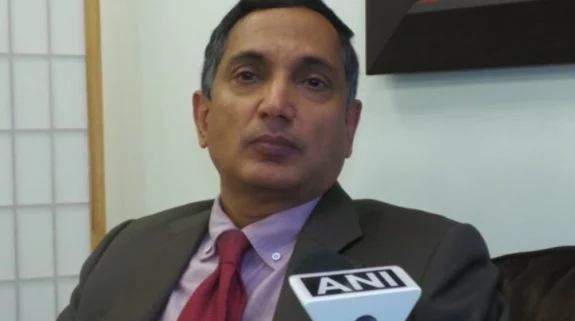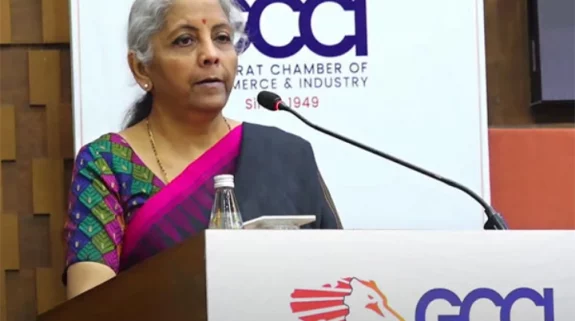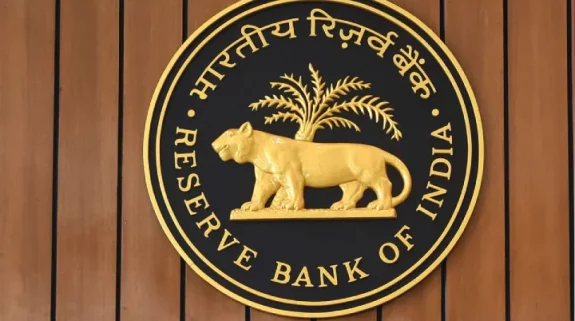Cecile Fruman, World Bank’s Director, Regional Integration and Engagement for South Asia says as demand from Europe is expected to weaken, the South Asian nations must tap intra-regional trade potential within the region to drive economic growth. In an interview with India Narrative, Fruman also highlights the importance of connectivity and cooperation for energy and food security.
What measures do South Asian nations need to take to ensure economic growth in the region is revived amid the ongoing Russia-Ukraine war?
The war in Ukraine has impacted food security and energy prices in the region with disruptions in exports of wheat, fertilizers, and crude oil. The continued conflict has added to the pressures of supply chain disruptions inflicted by COVID-19 pandemic. South Asia also exports 25 per cent of its products (textiles and garments) to Europe, where the demand is expected to soften. To sustain economic growth, South Asia can tap into the immense potential of the digital economy and the emerging services sector by expanding digital markets, businesses, and digital financial services. The region can also explore opportunities in intra-regional trade and investments, regional value chains and their integration into global value chains, and greater economic linkages with the broader Asia Pacific region.
Measures to strengthen energy cooperation, especially in clean energy production and exchange, can further support sustained economic recovery and greener growth. India has been increasing its electricity trade with Nepal, which allows it to import hydropower during the monsoon season, and to export energy to Nepal during the dry season. This is mutually beneficial and there is a positive movement towards creating an integrated electricity market that would also include Bangladesh and Bhutan.
Cross-border electricity trade supports energy security in the region and the transition to cleaner energy sources such as hydro and solar.
Will countries such as Nepal and Bangladesh, which go in for elections, be able to focus on the issue of connectivity in South Asia? Or will they prioritize domestic issues?
Issues of connectivity and cooperation are closely linked with domestic issues and economic growth. For instance, in Nepal, electricity generation and trade are important domestic as well as regional issues. This year Nepal could start exporting power to Bangladesh via India, in addition to the ongoing electricity trade with India. Nepal has immense hydropower and clean energy potential, which can help the neighbouring countries decarbonize and contribute to its own domestic needs and gross domestic product. Digital, transport, and trade connectivity are also key drivers of economic growth in this landlocked country.
Similarly, in Bangladesh regional cooperation draws attention domestically, as illustrated by the recent visit of the Bangladeshi Prime Minister Sheikh Hasina to India. The visit saw the two sides signing agreements in a wide range of areas of cooperation covering river water sharing, transport connectivity, trade and technology. Foremost among the pacts signed was the memorandum of understanding (MoU) to finalize an interim bilateral agreement on sharing waters of the Kushiyara, a distributary of the Barak River which flows through Assam, and then on to Bangladesh.
As a lower riparian state that shares 54 rivers with India, transboundary water management is an important domestic issue for Bangladesh. The agreement reached on the Kushiyara is the first on transboundary water that the two neighbours have signed in 25 years.
Also, both Nepal and Bangladesh have a large youth population, so topics like digital development, climate cooperation, and expanding economic opportunities within the region and beyond resonate domestically.
Do you think the efforts made by the South Asian nations to boost connectivity are enough?
The efforts are moving ahead in the right direction, particularly in the Bangladesh, Bhutan, India, and Nepal (BBIN) sub-region. Multimodal connectivity here has received a shot in arm with projects like the Eastern Waterways Grid, a network of 3,500 kms of inland waterways and coastal routes between India and Bangladesh, which will also link landlocked Nepal and Bhutan. Coastal routes will not only be faster as they are less congested, but also greener with seven times less greenhouse gas emissions as compared to land transport.
In another boost to regional connectivity, the World Bank has recently approved a $1.03 billion financing for Bangladesh and Nepal to upgrade road infrastructure to four-lane highways that are safer and resilient to adverse climates. Importantly, this project will also support automated border crossing points to enable trucks to move faster, and digitized trade processes to reduce trading cost and time.
Will implementation of BBIN agreement get delayed?
Implementing the BBIN Motor Vehicles Agreement (MVA) remains a priority and was discussed at the top level between Bangladesh, Nepal and India recently. The countries have finalized the enabling MOU and are working on the passenger and cargo protocols that are essential to operationalize the MVA. Implementation of the MVA and full transport integration has significant economic gains, with the potential to increase the national income of Bangladesh by around 17 per cent and India by per cent.
The implementation will also require infrastructure and logistics support, like upgraded road corridors and highways, digitized trade, and automated border crossing points. Some work on this is already underway with the World Bank-supported Accelerating Transport and Trade Connectivity in Eastern South Asia project.
What steps should these countries take to address climate change challenges?
South Asia is among the most vulnerable regions to climate risks, with an estimated 800 million people living in climate hot spots—areas where people could be most severely affected by changes in average temperature and precipitation. No country can deal with this scale of climate challenge on its own, mostly as climate events know no boundaries. The recent flood devastation in Pakistan is a reminder that countries need to work together in areas like weather forecasting, early warning systems, and collaborative disaster risk management. They have much to gain by sharing knowledge, pooling resources, and scaling innovation to strengthen climate resilience.
Countries can also share their specific expertise in climate issues. For instance, Bangladesh can share learnings on cyclone warning and preparedness as well as coastal resilience; India on urban adaptation and cooling solutions; Nepal and Bhutan on adaptation of mountain ecosystems; and Pakistan on managing droughts.
We also need to strengthen regional institutions and platforms for collective action, like the World Bank-supported South Asia Hydromet Forum, which brings together hydrometeorological experts and public and private sector stakeholders to support modernized hydromet services through sharing of data, knowledge and models, and capacity-building.
How significant was Bangladesh Prime Minister Sheikh Hasina’s recent tour to India?
The outcomes have been significant. In their joint statement, both Prime Minister Sheikh Hasina and Prime Minister Narendra Modi emphasized cooperation in areas including trade and connectivity, infrastructure upgrading, water resources management, power and energy development, and strengthening socio-cultural linkages. Recognizing the aspirations of the younger people and climate challenges in the region, they also agreed to strengthen collaboration in newer areas like environment, climate change, cyber security, information and communication technology, space technology, green energy, and blue economy. Significantly, there was a push to effectively implement the MoU on the “Conservation of the Sundarbans” to preserve this fragile ecosystem. The visit also brought more attention to development in the Northeast region.
PM Hasina has invited the seven chief ministers of the northeastern states and the Union Minister for Development of the Northeast Region (DoNER) to Dhaka to discuss ways to facilitate greater transit and trade, which is quite significant. The visit covered a wide range of issues, but more significantly gave a push to existing areas of cooperation, and at the same time, recognized the need to collaborate and adapt to the newer challenges and opportunities.
Also read: Modi and Hasina send a big message—India and Bangladesh are re-shaping Asia
India and Nepal set to seal one more node of cross-border connectivity soon







